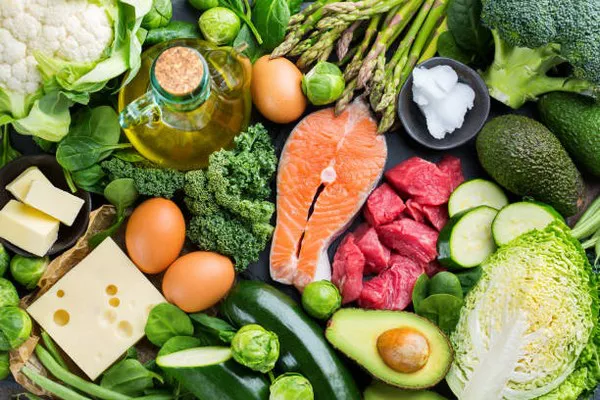Winter can bring about cravings for comfort food, making weight loss feel like a challenging task. However, certain seasonal foods can not only satisfy your taste buds but also aid in shedding those extra kilos. Packed with essential vitamins, minerals, and antioxidants, these winter foods support your weight loss journey while boosting immunity to fight off seasonal illnesses. Here’s a list of 11 winter foods to include in your diet for effective and enjoyable weight loss.
1. Sweet Potato
Sweet potatoes are a great winter food that promotes weight loss. High in fiber, they help keep you full for longer, reducing the urge to snack excessively. Rich in vitamins A and C, potassium, and antioxidants, sweet potatoes support metabolism and help curb cravings, making them an excellent choice for weight management.
2. Carrot
Low in calories yet high in fiber, carrots are perfect for weight loss. They help reduce body fat, BMI, and body weight, as supported by research published in Nutrition and Metabolic Insights. Carrots are versatile and can be eaten raw, added to soups, or roasted, all while regulating blood sugar levels and offering a satisfying natural sweetness.
3. Green Leafy Vegetables
Spinach, kale, and collard greens are packed with essential nutrients and are low in calories. Rich in fiber, they promote satiety and support digestion. Adding these greens to your winter meals can help regulate appetite and provide vital vitamins and minerals to keep you energized.
4. Beetroot
Beetroot is a nutrient-dense food that aids in weight loss. Low in calories but high in fiber, protein, and water content, beetroots support digestion, curb hunger, and enhance blood circulation. Whether added to salads or juiced, beets are a great addition to your weight loss plan.
5. Nuts and Seeds
Though calorie-dense, nuts and seeds like almonds, walnuts, chia, and flaxseeds are excellent for weight loss when consumed in moderation. These foods are rich in healthy fats, fiber, and protein, which help curb hunger, stabilize energy levels, and prevent overeating.
6. Soup
Warm, hearty soups are an ideal winter comfort food. Low in calories yet filling, soups can assist in lowering BMI and preventing obesity. To maximize the weight loss benefits, incorporate fiber-rich vegetables like carrots, beans, and cabbage, which will keep you full for hours without adding extra calories.
7. Oats
Oats are an excellent breakfast option that promotes satiety and supports weight loss. High in soluble fiber, oats help regulate blood sugar levels and keep hunger at bay. Studies show that oats are effective in suppressing appetite and managing weight by regulating hormones related to hunger.
8. Winter Squash
Winter squash varieties like butternut squash and pumpkin are low in calories but high in fiber. These squashes are not only filling but also packed with vitamins A and C, which help boost immunity during the cold months. They can be used in soups, stews, or roasted as a side dish.
9. Citrus Fruits
Citrus fruits like oranges, grapefruits, and lemons are rich in vitamin C, fiber, and antioxidants. These fruits support immunity, aid digestion, and are low in calories, making them excellent for weight loss. Their refreshing tangy flavor also helps curb sweet cravings.
10. Seasonal Fruits
Winter fruits such as guava, pomegranate, figs, and pineapple are packed with water content and low in calories, making them perfect for weight loss. These fruits help keep you hydrated and satisfy sweet cravings while offering a range of nutrients to support immunity.
11. Healthy Flour Alternatives
Instead of refined white flour, explore healthier options like jowar, bajra, ragi, and millet. These whole grains are rich in fiber and protein, which promote satiety and help regulate blood sugar levels. Incorporate these flours into rotis, porridge, or baking for a nutritious and satisfying meal.
Additional Tips for Weight Loss This Winter:
Stay Active Indoors: If it’s too cold to exercise outside, try indoor activities like yoga, dancing, or strength training to keep your metabolism active.
Hydrate Well: Don’t neglect hydration during winter. Drink plenty of water and herbal teas like green tea or ginger tea to boost metabolism.
Practice Mindful Eating: Avoid overeating by listening to your body’s hunger signals. Eat slowly and savor each bite to avoid consuming excess calories.
Cook at Home: Prepare meals at home to control ingredients and portions. Use healthy cooking methods like roasting, steaming, or grilling to keep dishes light and nutritious.
Get Enough Sleep: Aim for 7-8 hours of sleep each night to help regulate hunger hormones and support your weight loss goals.
Add Protein to Meals: Include lean proteins like chicken, fish, eggs, or plant-based sources like lentils and beans in your meals to keep you feeling full and aid muscle recovery.
Snack Healthily: Opt for nutritious snacks like nuts, fruits, or yogurt to prevent indulging in high-calorie junk foods.
Incorporating these winter foods into your diet, along with these tips, will help you lose weight effectively while still enjoying delicious, comforting meals throughout the season. Stay active, eat mindfully, and keep your body nourished with these nutrient-packed options for a healthier, leaner winter.
Related Topics:
What to Eat When Intermittent Fasting for Weight Loss


